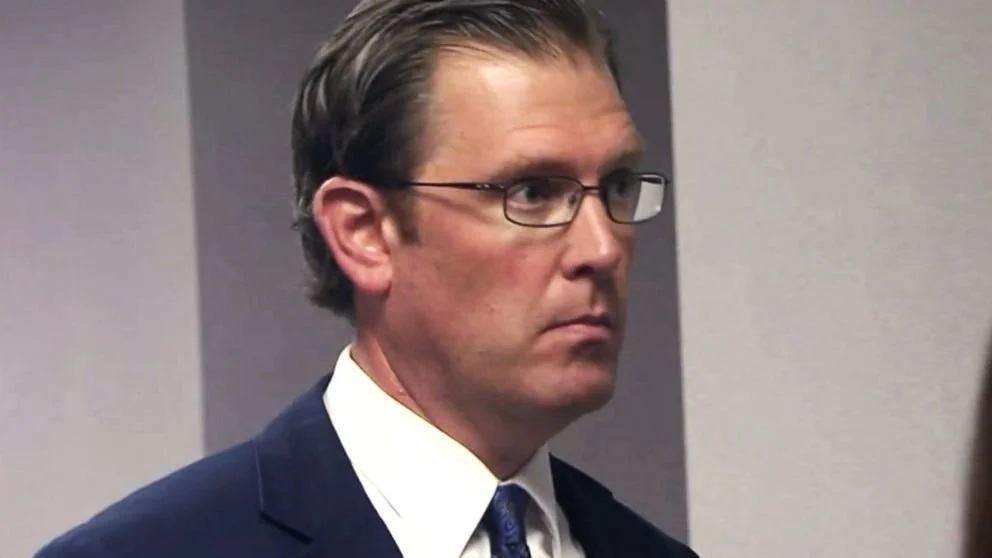In 2015, a lawsuit against Starbucks brought by Lt. Matthew Kohr, a police officer who spilled hot coffee on himself, drew significant attention. Kohr and his wife sought $750,000 in damages, arguing that the coffee spill caused severe medical issues, including third-degree burns and an exacerbation of his pre-existing Crohn’s disease. However, a North Carolina jury ultimately found that Starbucks was not liable, leaving the coffee giant free of financial responsibility for the incident.
The Lawsuit: A Hot Debate Over Responsibility
The story centers on Lt. Kohr’s claim that a faulty coffee cup was to blame for his suffering. According to Kohr, the lid of the coffee cup “popped off like a jack in the box,” spilling the hot liquid onto his lap, which resulted in severe burns. These burns, Kohr argued, triggered a massive flare-up of his Crohn’s disease, leading to surgery and prolonged medical treatment. His legal team argued that Starbucks should be held accountable for the alleged failure of its coffee cup, which lacked a protective sleeve or secondary cup, in violation of the company’s own safety guidelines.
Kohr wasn’t just asking for compensation for medical bills—he also claimed emotional distress from the accident. His testimony over two days during the trial detailed the pain he endured, the time he spent in the hospital, and how his injuries impacted both his work and personal life.
Starbucks’ Defense: A Cup of Hot Coffee Comes with Risks
Starbucks didn’t deny that Kohr was burned. But their defense rested on a simple argument: hot coffee is, by nature, hot. The risks associated with handling such beverages are widely understood. It’s not that Starbucks was delivering an unusually dangerous product—after all, millions of customers order hot coffee every day without incident. The company’s manual does recommend protective sleeves or double cups for venti-sized hot beverages, and a Starbucks manager testified that neither was provided in Kohr’s case. Yet, the company maintained that this omission wasn’t enough to establish their liability.
At the heart of the trial was a familiar legal debate: to what extent should a company be responsible for the actions of its customers? Was Kohr’s injury the result of negligence on Starbucks’ part, or was it simply an unfortunate accident for which the company couldn’t reasonably be blamed?
The Verdict: Starbucks Is Not Liable
After hearing testimony from both sides, the jury ultimately sided with Starbucks. Even though the majority of jurors didn’t fully agree on every detail, they reached a consensus that the coffee chain should not be held liable for Kohr’s burns or subsequent medical issues.
This decision reinforced a key legal precedent when it comes to “hot coffee” lawsuits, harkening back to the infamous 1994 case of Stella Liebeck, who was awarded $2.7 million after spilling a scalding cup of McDonald’s coffee on herself. In Kohr’s case, however, the jury seemed to agree that the situation was different—likely influenced by the fact that Kohr, unlike Liebeck, didn’t allege that the coffee itself was unreasonably hot or that Starbucks’ product was inherently dangerous.
The Role of Crohn’s Disease: A Pre-Existing Condition
One of the complicating factors in Kohr’s case was his pre-existing condition, Crohn’s disease, a chronic inflammatory bowel disease that can cause severe symptoms. Kohr’s legal team argued that the coffee spill worsened his condition, ultimately leading to surgery in which part of his intestine was removed. However, the jury likely found it difficult to connect the coffee spill directly to the need for surgery, particularly given the unpredictable nature of Crohn’s disease. Starbucks could argue that Kohr’s existing medical issues were unrelated to the coffee spill itself.
Legal Fallout and Implications for Future Cases
The jury’s decision not to hold Starbucks liable could have broader implications for similar lawsuits. For one, it sets a precedent that companies like Starbucks are not automatically responsible for injuries sustained from their products, especially when those products come with an inherent level of risk that consumers are presumed to understand.
Coffee is hot, knives are sharp, cars are fast—people use these products every day with the understanding that mishandling them can lead to injury. Kohr’s case didn’t involve faulty coffee or a defective product; it revolved around a momentary mishap with a coffee cup. It suggests that, while companies do need to provide safe products, they aren’t necessarily on the hook for every accident that might occur when people interact with them.
The Takeaway: Who Is Responsible?
In this case, it seems the jury recognized that accidents happen. And while Starbucks may have skipped a step in their safety protocols (not providing a cup sleeve or a secondary cup), that alone wasn’t enough to pin the full blame on them.
For Kohr, the burns were undeniably severe, and no one questions the pain and suffering he experienced. But proving that Starbucks was legally responsible for the incident—and that they owed Kohr hundreds of thousands of dollars—was another matter. The jury’s verdict highlights the difficulty in assigning fault when personal injury cases revolve around something as common as a cup of coffee.
What’s clear, though, is that these cases will continue to make headlines, as businesses navigate the balance between protecting customers and defending themselves from legal claims that arise from everyday mishaps.
In the end, the Kohr case serves as a reminder of the legal complexities surrounding product liability and personal injury. While the case didn’t go his way, it adds to the ongoing conversation about how we handle risk, responsibility, and accidents in the modern world.

